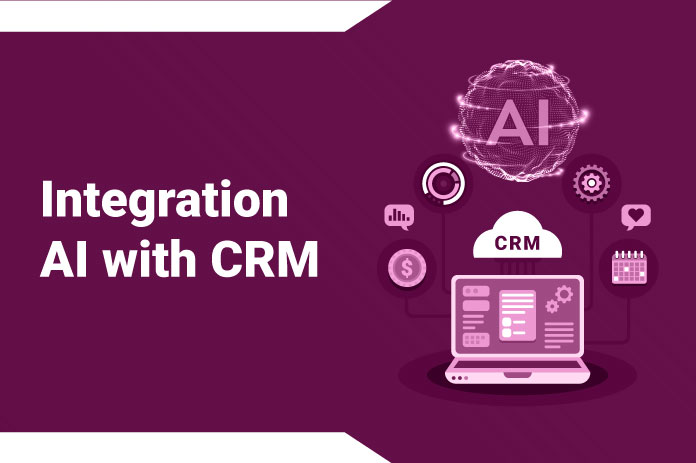Table of Contents
- AI Chatbots for Business
- CRM for Business
- Integrating Custom Chatbot Solutions with CRM
- Benefits of Integrating AI Chatbot Solutions with CRM
- Best Practices in Chatbot and CRM Integration
- CRM-AI Chatbot Integration: How to Do It Right
- Conclusion
- FAQs
AI Chatbots for Business
AI-driven chatbots are transforming how businesses interact with customers. In an era where immediate support is expected, traditional models no longer suffice. AI chatbots provide 24/7 assistance, automate interactions, and learn from each engagement to improve over time. Companies across industries—from retail to healthcare—adopt these tools to reduce costs, enhance engagement, and increase sales.
CRM for Business
Customer Relationship Management (CRM) is essential software that manages interactions with current and potential customers. It streamlines processes, connects various departments, and drives profitability. CRMs consolidate data from multiple sources and often use AI to enhance customer relationship strategies across the lifecycle—from acquisition to retention.
Integrating Custom Chatbot Solutions with CRM
Integrating AI chatbots with CRM systems streamlines workflows and enriches customer experiences. This integration allows chatbots to access and update customer records in real time, offering personalized, accurate, and efficient support. The result is improved operational efficiency, better service delivery, and insightful data for strategic decisions.
Benefits of Integrating AI Chatbot Solutions with CRM
- Enhanced Lead Scoring: AI analyzes customer behavior and history to prioritize high-potential leads.
- Automated Customer Service: Chatbots address routine queries and guide users through processes.
- Improved Customer Insights: Data from multiple channels helps tailor communications.
- Faster Response Times: Workflow automation ensures quick handling of queries.
- Increased Employee Productivity: Automates routine tasks like data entry and follow-ups.
- Predictive Analytics: AI detects trends to forecast future customer behavior.
- Stronger Data Security: AI monitors and alerts about potential security issues.
Best Practices in Chatbot and CRM Integration
- Set Clear Goals: Align chatbot integration with business objectives.
- Map Data Fields Correctly: Ensure key CRM fields match chatbot outputs.
- Maintain Data Consistency: Use validation rules and real-time syncing.
- Use Smart Automation Rules: Lead scoring, scheduling, and ticketing.
- Train Teams Effectively: Provide training on tools and data use.
- Ensure Data Security: Use encryption, MFA, and access controls.
- Vet Third-Party Tools: Check compliance certifications before integration.
CRM-AI Chatbot Integration: How to Do It Right
- Assess CRM Capabilities: Evaluate available APIs and login security.
- Define Chatbot Functions: Outline desired actions and data updates.
- Plan Your Budget: Consider feature requirements and complexity.
- Coordinate Data Flows: Align data fields and add validation logic.
- Connect Systems Securely: Use middleware and secure protocols for data handling.
Conclusion
Integrating AI chatbots with CRM systems is no longer optional—it’s a strategic move that drives efficiency, personalization, and real-time customer engagement. Businesses adopting this technology gain a competitive edge, improve service delivery, and open doors to smarter, scalable growth.
FAQs
- How can AI boost customer service?
AI handles routine inquiries and ensures faster resolution. - How do chatbot solutions predict customer behavior?
AI analyzes past data to forecast actions. - What role do chatbots play in CRM?
They automate updates, provide support, and enable analytics. - Can generative AI improve CRM outcomes?
Yes, through personalized messaging and insights.





